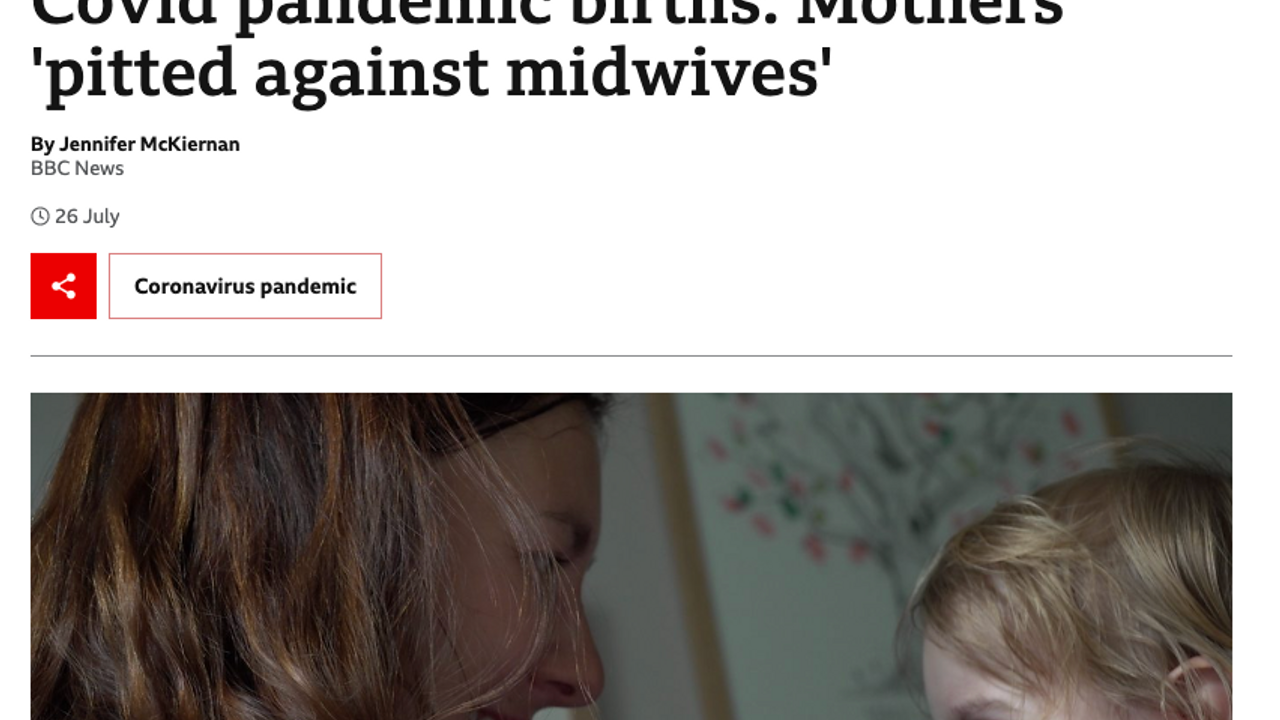‘Mothers pitted against midwives’
Aug 04, 2022
Last month a London Assembly health committee review of Covid maternity care in the capital heard that over 75% of the 110,000 women who gave birth in London in 2020 laboured alone, without their partner's support.
Mothers were frequently left to labour, birth and recover alone as staff shortages of up to 40% worsened the already punitive Covid restrictions on partners attending, the committee has found.
Dr Tyler, from the RCM said the pandemic "ended up pitting midwives against women", she criticised the "confusing... contradictory" advice from the government and NHS England that "kept changing".
Sadly, there has been no shortage of Covid era parents sharing their traumatic stories of birthing alone, afraid and desperate for support, like those featured in this week’s BBC article.
It’s heart breaking that these parents experienced such panic and terror during birth.
Extreme fear during birth is the biggest factor in whether parents will experience their birth as traumatic. We also know that experiencing birth as a traumatic event leaves parents vulnerable to suffering with trauma symptoms.
Feeding, caring for and bonding with a baby is especially difficult after a traumatic birth experience, when for many parents levels of adrenaline, cortisol and catecholamines remain high and hinder the production and flow of love hormones necessary for the parent baby relationship to form.
Many parents do go on and make a good recovery after a traumatic birth however they can find themselves inexplicably re-triggered and gripped by trauma symptoms when they are pregnant again or considering another baby.
I believe that within many Covid era parents exists a ticking time bomb of trauma symptoms waiting to go off the next time they are pregnant and need to access the same maternity services that last time failed them.
There is not only a chronic shortage of midwives but also a lack of appropriately trained professionals who are able to support recovery from perinatal trauma effectively, gently and safely
Young mother, Annabel, recently wrote to say;
‘Thank you for being there when I thought that the only option was the Sertraline my GP had prescribed. I have managed to return to work again and Abigail is thriving in nursery. When we started working together, I never thought this would be possible. It feels like I have been given a second chance a motherhood.’
Fortunately, TBR Practitioners can support parents at any stage of their perinatal journey from trying to conceive to breastfeeding trauma and all the other difficulties in between.
Recent graduate Victoria White said;
‘I think I've been surprised by just how impactful the work is learning to connect with our own natural ability to want to heal from trauma and the positive use of guided imagery and imagination really has been life changing for some clients. Clients who didn't think they wanted any other children for example, have messaged me down the line with pregnancy needs. And incredible shifts in how people view themselves and treat themselves with self-compassion have taken place.’
There are only a few places left on the next TBR Certificate course starting in September.
Could you learn the skills and therapeutic framework that can be life changing to parents struggling to cope after perinatal trauma?
The world needs more Perinatal Practitioners than ever before.
Book your call for an informal chat to find out if this 18 month study could be the right course for you.

